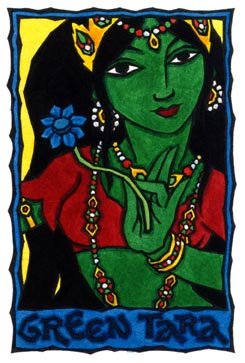Mutha Loves That Dirty Water
I have lived in the Boston area for most of my adult life beyond college. Because I moved several times as a kid, it turns out that I have lived here longer than I have lived anywhere else. And so, as the song goes, "I love that dirty water. Oh, Boston you're my home."
Now, in that song, "that dirty water" refers to the Charles River, but it reminds me of a broader theme -- and one of the reasons I really love Boston: the fact that it is flawed. The city has a historic, messy, sometimes dirty and always complicated history on every level imaginable and wears it as if it were a heart on a sleeve.
I have worked for years in programs that serve families in crisis and Boston's poor. These experiences have brought me in contact with this messy history and the ways it has played out and continues to play out in the lives of real people. It has inspired me to develop a real affection and loyalty for the neighborhoods in which these lives go on: Mission Hill, South Boston, Jackson Square, etc. That affection and loyalty springs from the knowledge that these people are not cookie-cutter stereo-types. Everyone has a story, and it is usually a rich one full of trauma but also full of joy and triumph, love.
So, I guess it is no wonder that three of my favorite books are ones that capture my experience of Boston. I highly recommend them all:
Boyos by Richard Marinick
Marinick ran with the boyos of the Irish mob in South Boston (counterparts to the wiseguys of the Mafia) and robbed -- among other things -- armored cars. He got away with it for a number of years and then his luck ran out. After a substantial stint in prison, he emerged a writer, and Boyos is his first novel. It is billed as a mystery, but rather than a "who dunnit" it is more of a "Who's gonna do it?". Marinick creates the scenario of a crime organization unraveling and the reader is held spell-bound by the question: who is going down and who will take him down? Jack "the Wacko" Curran is the story's anti-hero and he sends us through the streets of Southie to reveal not only a part of Boston, but the sub-culture within. Artfully done and clearly the kind of meatiness born out of only the finest imaginations or from the individuals who live this life. Marinick gives his reader both.
All Souls : A Family Story from Southie by Michael Patrick MacDonald
Many remember the Boston of the 70's by glimpses of filmed images. Some might remember Carlton Fisk willing his World Series homerun fair, but others remember the light blue helmets of Boston Police motorcycle cops. If you remember the helmets, you might also remember the images of rocks being thrown at horror-struck black children in school buses, and of the close-ups of the twisted expressions of anger on the faces of South Boston's white poor. The residents of Southie were cast as villains and that title has stuck. All Souls tells a richer story, making it clear from the first paragraph that no conflict, especially not the Boston busing crisis is that simple. MacDonald tells the unflinching story of not simply a community, but his community -- not a family, but his family. It is a love letter to his mother, brothers and sisters and a powerful message concerning real healing within South Boston, but also throughout all the neighborhoods effected by that violence and the difficult years that have followed.
Another Bullshit Night in Suck City by Nick Flynn
Nick Flynn worked at the Pine Street Inn, a shelter for homeless men in Boston. And then one day, not all that long after his mother killed herself, the father he had never really known walked in looking for a bed. It's tough to think of a premise that could live up to this title, but there you go. Flynn is a poet and his prose style shows it, spare and lovely even at it's most brutal. He tells of his childhood on the south shore, a thrill-seeking risk-taking adolescence, a devoted love for a complicated mother, and the thorough beating he withstands from the stark trauma of her suicide. Although Flynn rejects and then ultimately reaches out to his father, the story presented is anything but a pat tale of compassion in the face of adversity. Instead Flynn gives us an inventive, painful and often funny portrait of a man too close to drowning himself to try and save anyone's life.
Nick Flynn has reported that in other parts of the world his audience remains eerily silent or even openly weep as he reads passages from his memoir. This is true everywhere but in Boston. Here his audience laughs.


0 Comments:
Post a Comment
<< Home